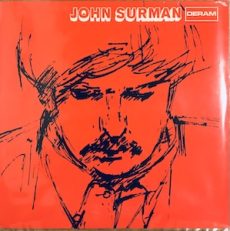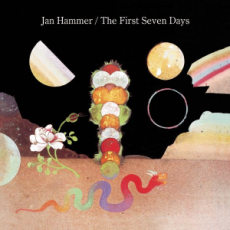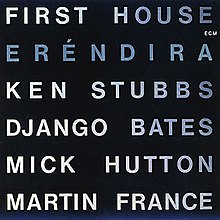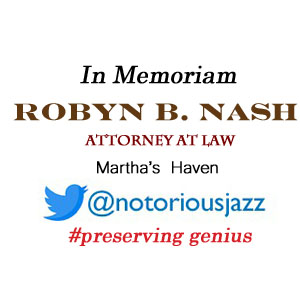
Daily Dose Of Jazz…
John Douglas Surman was born August 30, 1944 in Tavistock, Devon, England. He initially gained recognition playing baritone saxophone in the Mike Westbrook Band in the mid-1960s, and was soon heard regularly playing soprano saxophone and bass clarinet as well.
His first playing issued on a record was with the Peter Lemer Quintet in 1966. After further recordings and performances with jazz bandleaders Westbrook and Graham Collier and blues-rock musician Alexis Korner, he made the first record under his own name in 1968.
In 1969, he founded The Trio along with two expatriate American musicians, bassist Barre Phillips and drummer Stu Martin. In the mid-1970s, he founded one of the earliest all-saxophone jazz groups, S.O.S., along with alto saxophonist Mike Osborne and tenor saxophonist Alan Skidmore.
During this early period, he also recorded with (among others) saxophonist Ronnie Scott, guitarist John McLaughlin, bandleader Michael Gibbs, trombonist Albert Mangelsdorff, and pianist Chris McGregor’s Brotherhood of Breath.
In 1972 he had begun experimenting with synthesizers. The musical relationships he established during the Seventies with pianist John Taylor, bassist Chris Laurence, and drummer John Marshall; singer Karin Krog and drummer/pianist Jack DeJohnette continued for decades.
Since the 1990s, he has composed several suites of music that feature his playing in unusual contexts, and has worked with bassist Miroslav Vitouš, bandleader Gil Evans, pianist Paul Bley and Vigleik Storaas, saxophonist and composer John Warren, guitarists Terje Rypdal and John Abercrombie and trumpeter Tomasz Stańko.
Baritone and soprano saxophonist, clarinetist, synthesizer player, and composer of free jazz and modal jazz, who continues to often use themes from folk music has also composed and performed music for dance performances and film soundtracks.
More Posts: bandleader,clarinet,history,instrumental,jazz,music,saxophone,synthesizer

Daily Dose Of Jazz…
Nguyên Lê was born Le Thanh Nguyen on January 14, 1959 in Paris, France of Vietnamese ancestry. He began playing drums at the age of 15, then took up guitar & electric bass. After graduating in Visual Arts he majored in Philosophy, writing a thesis on Exoticism. A self-taught musician, Nguyên started out playing rock, funk, jazz standards, avant-garde jazz, pop, African, Caribbean, and other world music.
Devoting himself to music, in 1983 he created Ultramarine, a multi-ethnic band whose recording DÉ has been considered 1989’s Best World Music album. He went on to record several albums and worked with such musicians as Miroslav Vitous, Trilok Gurtu, J. F. Jenny Clarke, Dewey Redman, Andy Emler, Jon Christensen, Nana Vasconcelos, Glenn Ferris, Kenny Wheeler, John Taylor and numerous others.
He has played with the O. N. J., the French National Jazz Orchestra in which he played with Johnny Griffin, Louis Sclavis, Didier Lockwood, Carla Bley, Steve Swallow, Randy Brecker, Toots Thielemans, Courtney Pine, Steve Lacy, Dee Dee Bridgewater, Gil Evans, Quincy Jones, Randy Brecker, Vince Mendoza, Carla Bley, Per Mathisen, Marc Johnson, Peter Erskine, Trilok Gurtu, Paolo Fresu and Dhafer Youssef and numerous others.
He has released albums as a leader and as a sideman. His 1996 album Tales from Viêt-Nam blends jazz and traditional Vietnamese music. In spring 2011 he released Songs of Freedom, an album with cover versions of pop hits from the 1970s.
Guitarist and composer Nguyên Lê continues to perform, record and compose.
More Posts: bandleader,guitar,history,instrumental,jazz,music,synthesizer

Daily Dose Of Jazz…
Eric Ross was born on May 14, 1948 in Carbondale, Pennsylvania and began studying piano at the age of seven under Jean Krantz-Thomas. Ten years later he started to write his own compositions and in the late 1960s and early 1970s he studied guitar and attended the electronic music composition course with Charles Dodge at Columbia University.
1972 saw him finishing college and beginning his career as a musician by playing and working in recording studios. Three years later Eric began playing the theremin and the following year he played his music exclusively, allowing him to develop it as a voice in his compositions. In 1982 he released his first album, Songs for Synthesized Soprano, and performed in concert at the Lincoln Center in New York.
He has performed throughout the United States and toured Europe, in addition to performing on radio, television and film. For over twenty years Eric’s ensemble featured John Abercrombie, Larry Coryell, Andrew Cyrille, Oliver Lake, Leroy Jenkins, Youseff Yancy, Lydia Kavina, and Robert Dick, among others.
Along with his wife Mary, the couple created memorable multimedia performances that intertwined music with images, video projections, and dance. As an educator he has lectured on the theremin, piano, guitar, and electronic music at colleges, universities and schools in the USA and Europe.
Pianist and guitarist Eric Ross, who also plays synthesizers and is a master of the theremin, continues to blend classical, jazz, serial and avant-garde in his performances.
More Posts: bandleader,guitar,history,instrumental,jazz,music,piano,synthesizer,theremin

Daily Dose Of Jazz…
Jan Hammer was born in Prague, Czechoslovakia on April 17, 1948 to a mother who was a well-known Czech singer, and his doctor father who worked his way through school playing vibraphone and bass guitar. He began playing the piano at the age of four with formal instruction starting two years later. He aspired to follow his father into medicine until a family friend convinced him to develop his musical talents instead.
Forming a jazz trio in high school, he performed and recorded throughout Eastern Europe at the age of fourteen. Upon entrance to the Prague Academy of Musical Arts, he completed many compulsory classes including harmony, counterpoint, music history, and classical composition. He moved to the United States and resolved to become a citizen after receiving a scholarship at Berklee School of Music in Boston, Massachusetts. Upon completion of his studies, Jan spent a year touring with Sarah Vaughan, recorded with Elvin Jones and Jeremy Steig, then moved to New York City in 1971 and joined the original lineup of the Mahavishnu Orchestra.
Though he previously recorded as a leader and sideman, his debut solo album, The First Seven Days, dropped in 1975. He formed the Jan Hammer Group in 1976 to support the album tour, which received good reviews from both jazz and rock critics. During the mid 70s to early 80s he recorded and played with Joni Mitchell, Billy Cobham, Santana, Tommy Bolin, Harvey Mason and Stanley Clarke.
Returning to solo work he recorded an album in 1978, formed a new band, known as Hammer, and wrote theme song for a British television series. He formed Schon & Hammer, played benefit concerts, and has received three Grammys and an Emmy nomination. By the Nineties and well into the new millennium, he continued to score and compose for film and television. In 2018 he released his first album of new material in over 10 years: Seasons – Part 1.
Keyboardist, drummer, composer, and record producer Jan Hammer continues to produce and perform.
More Posts: bandleader,composer,drums,history,instrumental,jazz,keyboard,music,producer,synthesizer

Daily Dose Of Jazz…
Mick Hutton was born on June 5, 1956 in Chester, United Kingdom. Making a name for himself in the British jazz scene, he worked with a number of musicians and groups including but not limited to Harry Beckett, Julian Argüelles, Iain Ballamy, Django Bates and Ken Stubbs of First House, the Chris Biscoe Sextet and Bill Bruford’s Band Earthworks.
A hand injury forced Mick to abandon the upright bass and he started working as bass guitarist, percussionist, and synthesizer player and as a composer. He works with his own band of saxophonist Andy Panayi, pianist Barry Green, and drummer Paul Robinson. With his quartet, including saxophonist Iain Ballamy, pianist Ross Stanley and drummer Paul Robinson, he frequently visits venues around the world.
Throughout his career Hutton has performed with Alan Barnes, Peter Erskine, Tina May, Jim Mullen, John Scofield, Alan Skidmore, Tommy Smith, John Taylor, Stan Tracey, and Kenny Wheeler. In 2002 he recorded on Robin Williamsons album Skirting the River Road, and the same year he played in a trio with Martin Speake and Paul Motian, recording Change of Heart.
Bassist, guitarist, percussionist and composer Mick Hutton, who also plays synthesizer, continues to perform and record.
More Posts: bass,composer,guitar,history,instrumental,jazz,music,percussion,synthesizer






